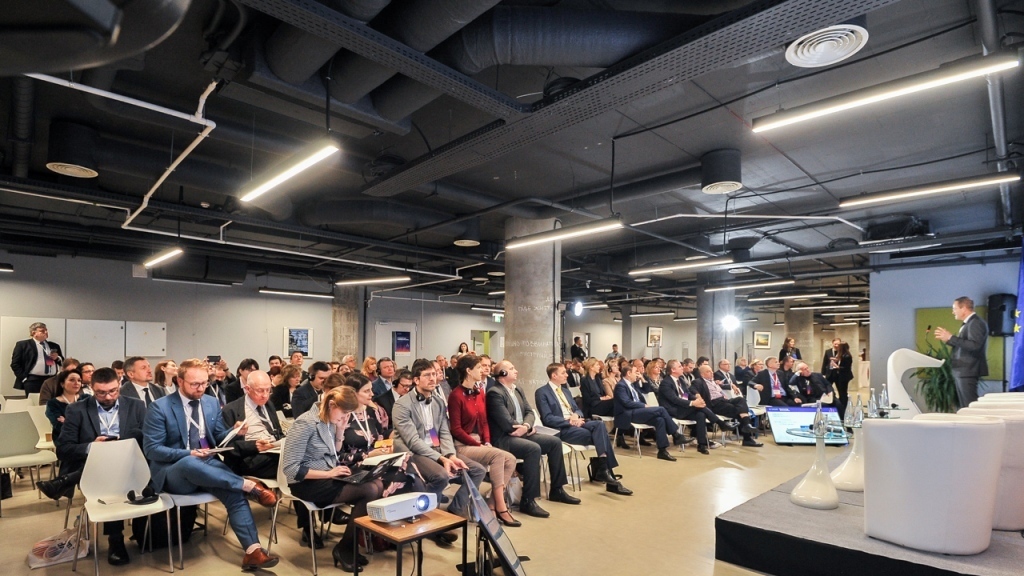U-LEAD’s International Expert Exchange conference “Empowering Municipalities” in quotes
On 13 December 2019 the U-LEAD with Europe Programme brought together policy-makers, national and international experts, academia at the International Expert Exchange conference "Empowering Municipalities. Building resilient and sustainable local self-government". The event took place at the House of Decentralisation and focused on the issues of the territorial reform, local self-government and socio-economic development. Besides, foreign guests of the conference presented a number of practical European reform cases.
The event was opened by Vyacheslav Nehoda, Deputy Minister of Communities and Territories’ Development, and Frederik Coene, First Counsellor, Head of Operations Section 2 “Local and Human Development”, EU Delegation to Ukraine, and Bastian Veigel, GIZ Programme Director of U-LEAD with Europe.
“I am grateful to our international partners, U-LEAD with Europe, Professor Milbradt and all those who are actively involved in the implementation and support of the local government reform in Ukraine. It is important that Ukrainians believed in the reform. In 2015, only 19% of our citizens supported decentralisation, and in 2018 – already 58%. 61% of residents of amalgamated hromadas confirm an improvement in the quality of services in hromadas. So, we have to complete the reform and live up to people’s expectations,” Vyacheslav Nehoda said.
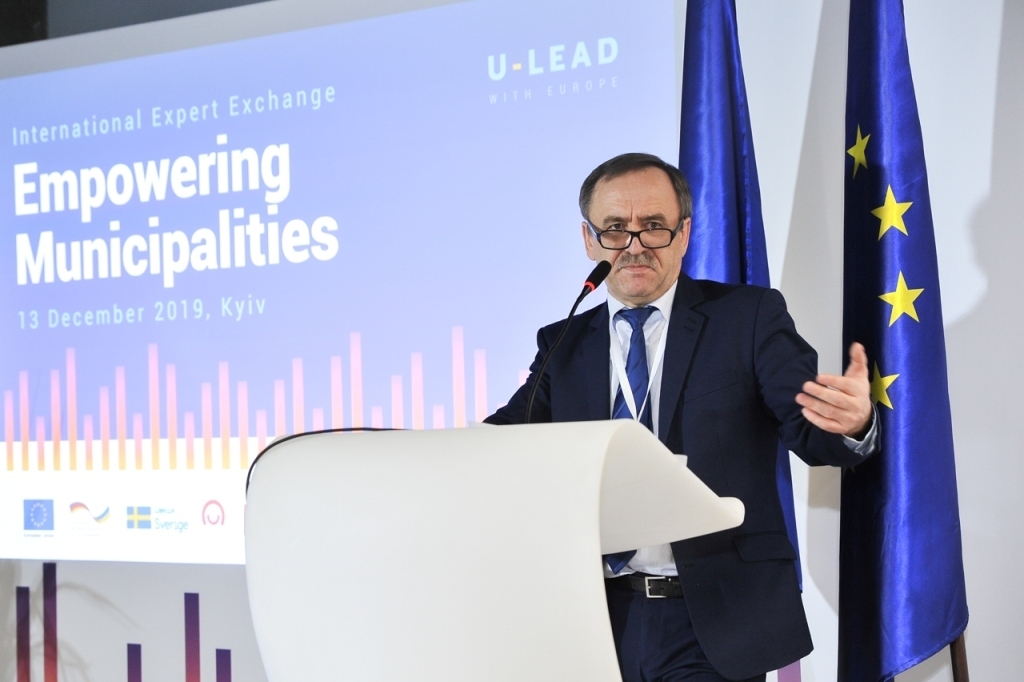
“The whole U-LEAD team has been doing a great work in the last years. The results we see is for a great extent due to what you have been doing. And also, the member states have been supporting U-LEAD and will continue financing,” said Frederik Coene adding that U-LEAD will further support Ukraine in 2020-2023.
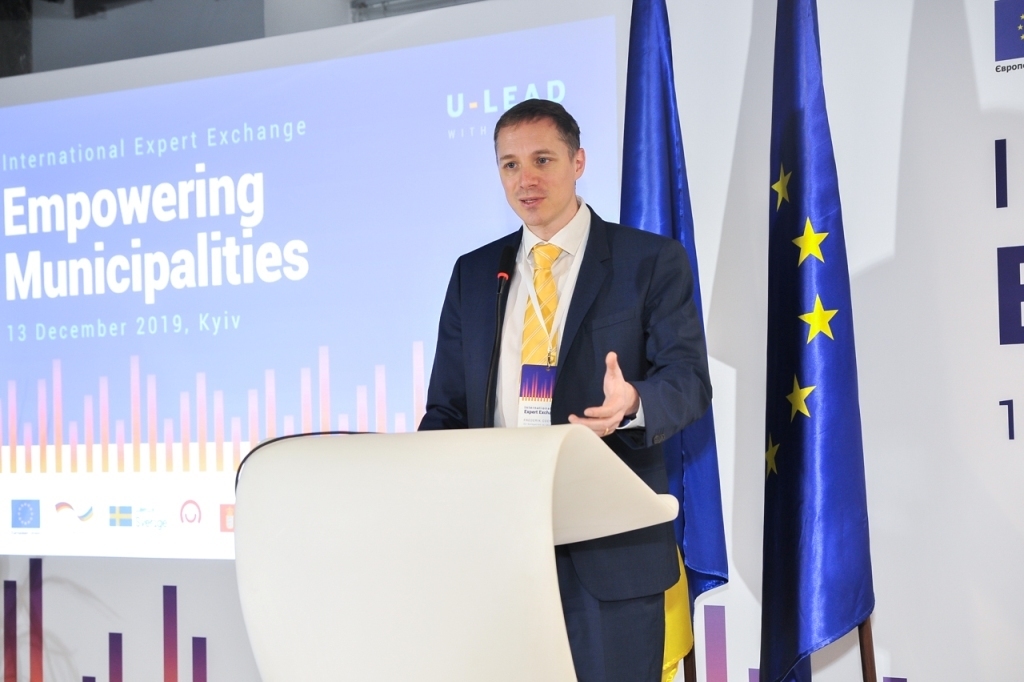
Bastian Veigel, GIZ Programme Director of U-LEAD with Europe, outlined: “Over the course of Programme implementation, we witnessed great energy and passion. Thousands of officials and citizens have been embarking on the reform process sincerely wishing to change their lives and their country. This passion and readiness for change have been motivating us in our everyday work.”
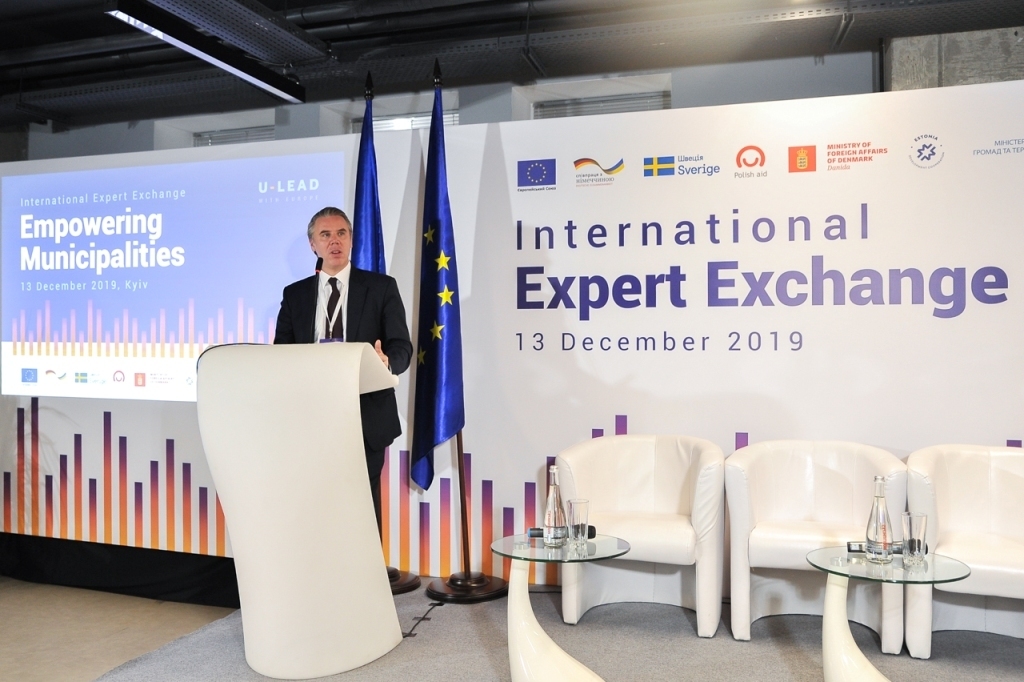
Florian Hauser from the European Commission's Structural Reform Support Service, delivered a keynote speech about the EU approach to reforms. He highlighted that changes and reforms that happen in Ukraine are common practice of all EU Member States. Only persistence and commitment of each state ensures development and visibile results.
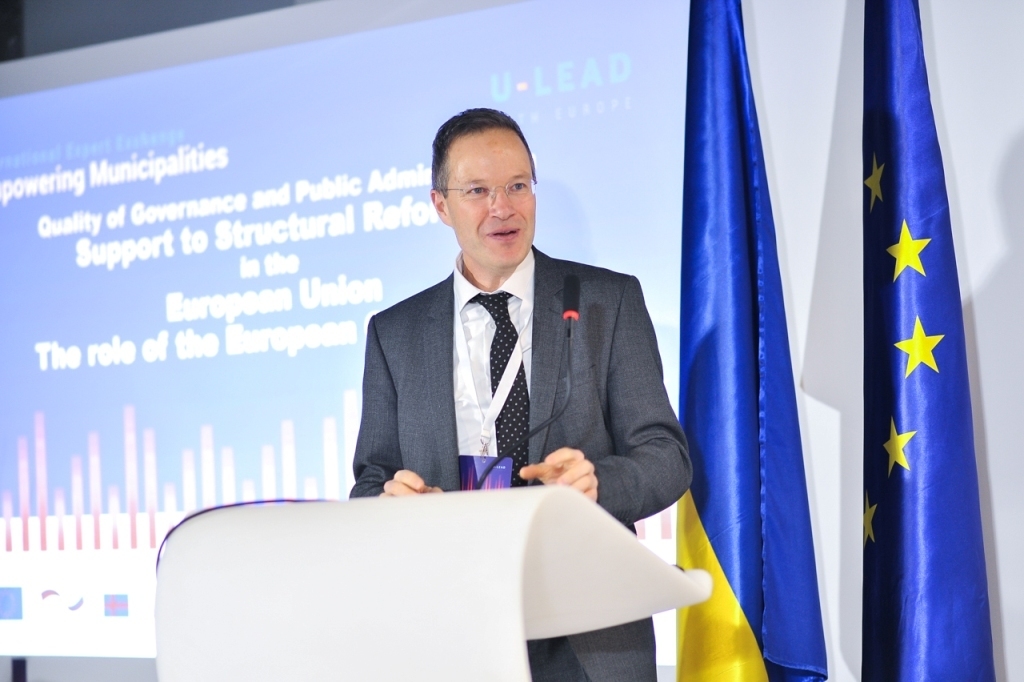
In course of the parallel thematic workshops the participants had a chance to discuss essential issues related to three reform pillars: local self-government, territorial reform and local socio-economic development, as well as to receive expert advice on relevant topics.
In her speech in the frames of the workshop on local self-government, Mrs Manuela Söller-Winkler, U-LEAD with Europe expert, noted: “LSG means autonomy, which also concerns supervision by state level. It is very important to have a clear understanding of the category of the different tasks of LSG. Regarding own tasks, the state is allowed to supervise only the legality of their implementation – this means it is not allowed to intervene on how the LSG is implementing these tasks. As for delegated tasks, which are in nature state tasks, the central government’s supervision includes expediency – this means the state is allowed to influence how the delegated tasks are ought to be fulfilled. It is to be highlighted that supervision is not about punishment. The contrary, it is absolutely vital to stress that any kind of supervision should happen at eye-level based on support, trust and partnership between LSG bodies and the state.”
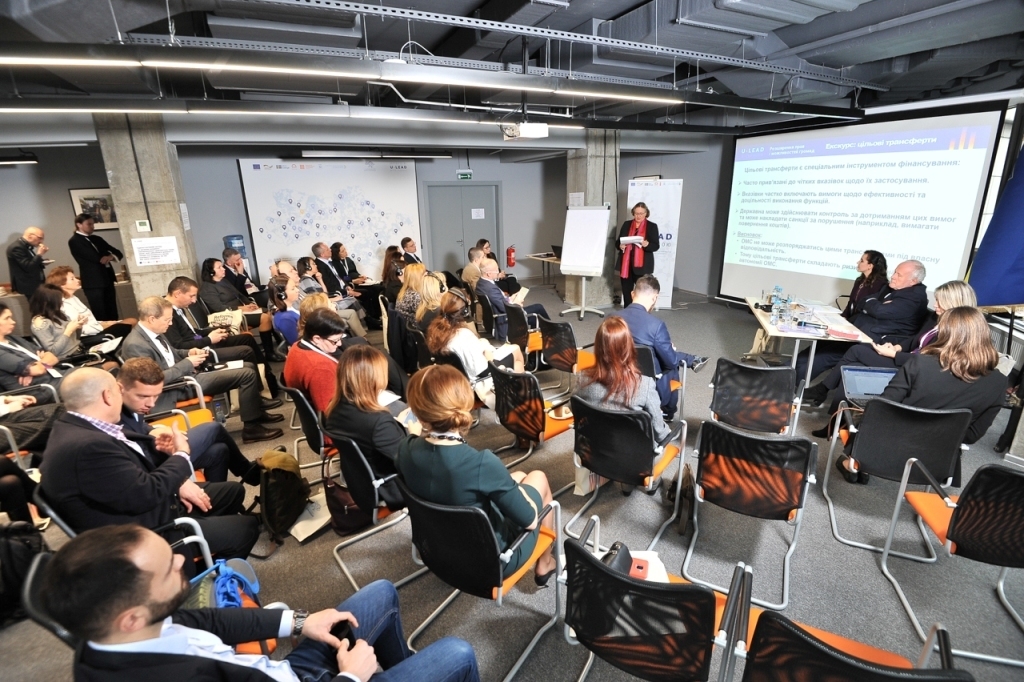
Tony Levitas, Senior Fellow at Watson Institute, Brown University, stated: “Municipalities should not have to earn their right to self-government. This must be guaranteed by the constitution, and protected by the state. A fundamental element of this protection is that the state must provide municipalities with adequate resources, including, or especially those whose tax basis are weak. Here, it is critically important to understand that it is impossible to create what some have been calling “fiscally self-sustainable” AH by amalgamation alone: You simply cannot create “rich” hromadas by consolidating lots of poor, primarily rural areas into larger units. This is why we think Ukraine needs to strengthen its equalisation system if the new AHs are to be able fulfil either their service responsibilities or their democratic promise.”
Socio-economic development session focused on data and evidence LSG bodies need and use in their decision-making. The participants of the workshop have seen the idea of the data and monitoring system Ukraine may develop in the future and observed the case of Helsinki as one of the best data management cases for decision-making.
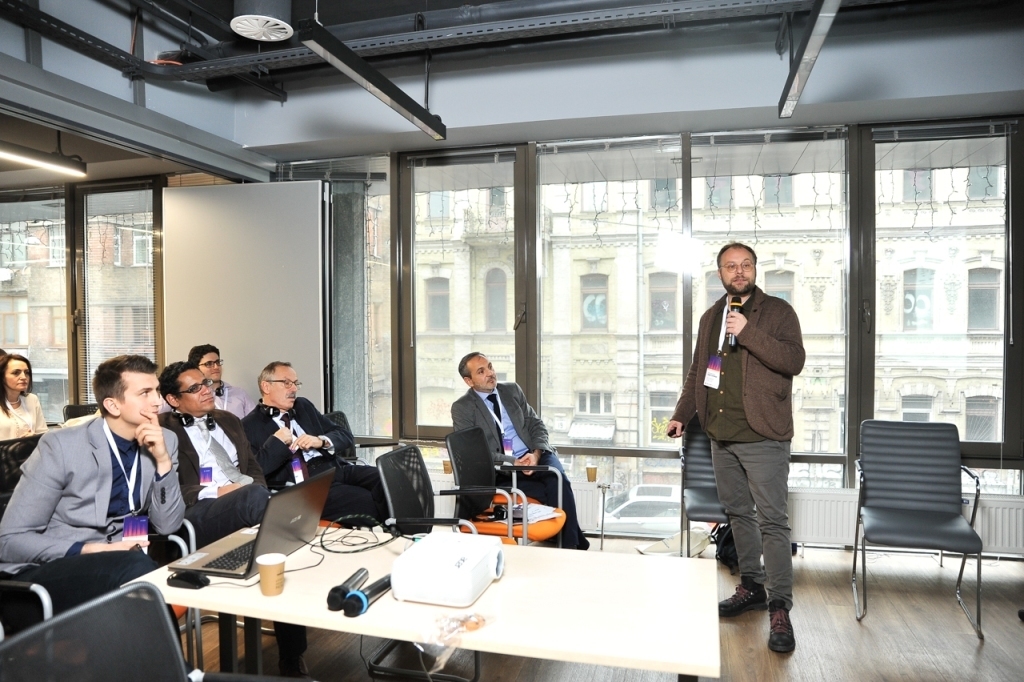
Natalia Starostenko from the EU Delegation to Ukraine noted: “In Ukraine we will need to carefully decide what parts of the future overreaching data collection system we need to develop first and what can be seen as a future task. When developing the system, the issues of quality, link of data to decision-making and security of data need to be taken into account.”
Presenters also gave an overview of how local administrative service centres are supporting local development and what are their functions not only being administrative, but also social cohesion hubs. This was followed with Polish experience in reginal development and presentation of the survey results where AHs were analysed on their project processing and capacities.
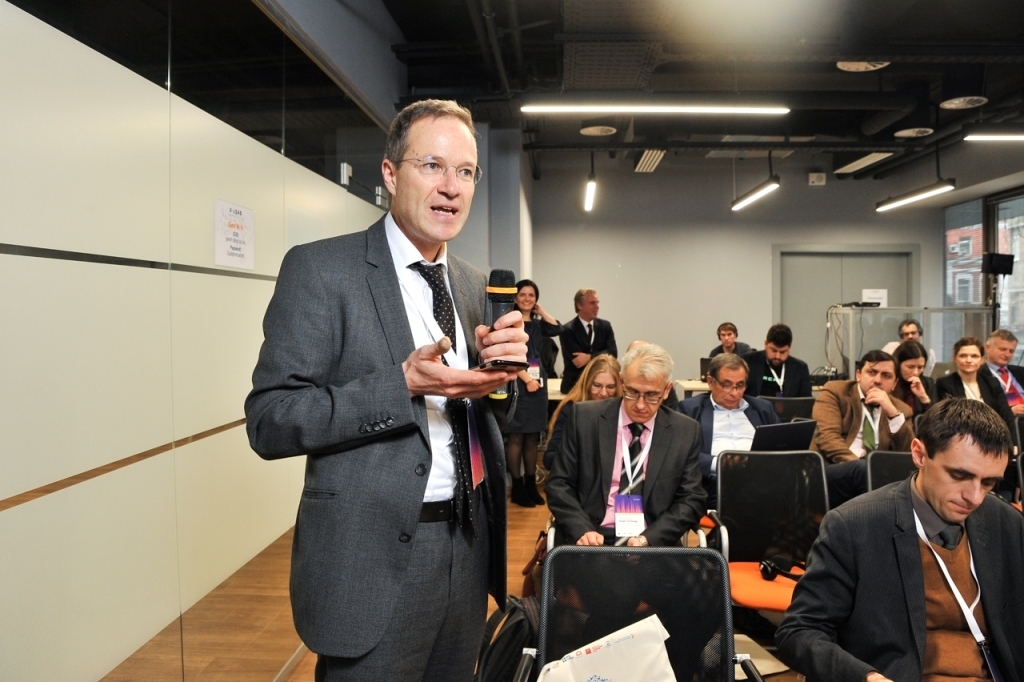
The main messages of the discussion included the following ideas:
- Hromadas need to be attractive to business. Business is a key to stability and to lower disparities.
- There should be an environment created where innovation can prosper.
- The first requirement of the projects is to meet citizens’ needs.
- Building our knowledge strengthens the foundations of everything we do.
Nila Ostrovska, head of the Krasylivska urban AH, said: “Ukrainian AHs are able to support local processes and growth, but responsibilities need to be clearly defined and capacities of the administration need to be further developed. Every instrument needs to be carefully planned and lined to AHs.”
The territorial reform workshop featured six high quality presentations across the morning and afternoon sessions, including an overview of experience with municipal amalgamation across Europe, and featuring cases from Denmark, Estonia, eastern Germany and Ukraine.
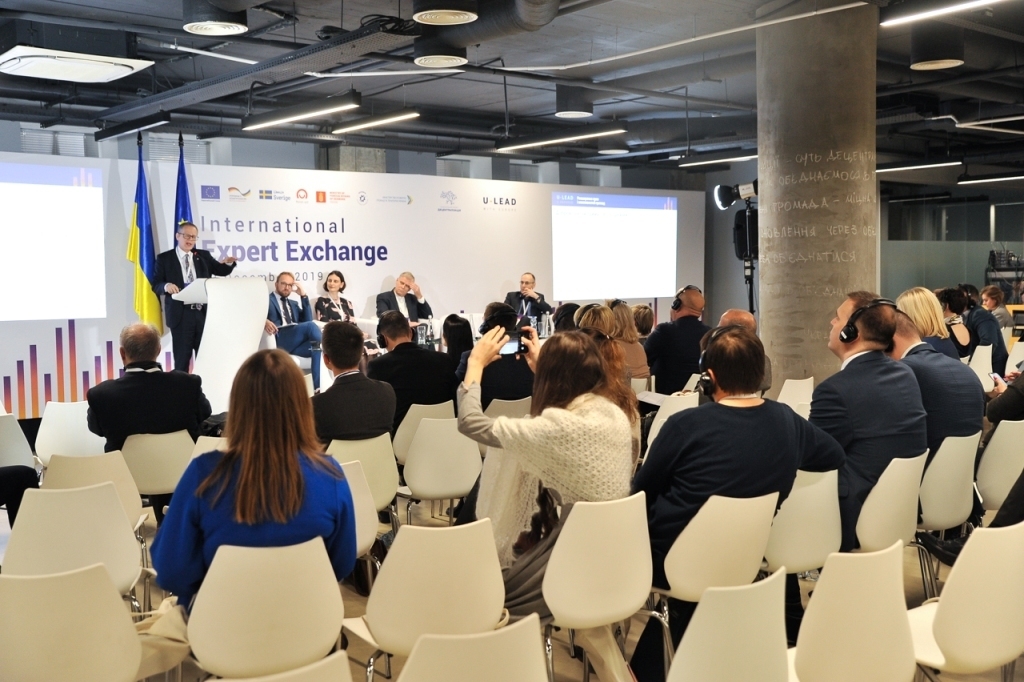
Among the themes discussed at the workshop was the topic of municipalities capability empowerment, the issue of coherence and common identity. Dr. Ulrik Kjaer, the University of Southern Denmark, presented Danish experience in involvement of meditation of the reluctant and indecisive municipalities, as well as helpting to steer them towards an agreement.
From his side, Felix Rösel, ifo Institute in Dresden, presented experience of East Germany in terms of amalgamation. The discussion touched upon high influence of amalgamation on local democracy, namely raising the topic of bigger communities in size versus lower turnout. Pavlo Ostapenko, U-LEAD with Europe expert presented criteria currently applied in Ukraine concerning amalgamation process. Last but least, Paweł Swianiewicz, University of Warsaw, made the case for “natural micro-regions, building territorial organisation around urban or settlement areas, rather than minimum population”.
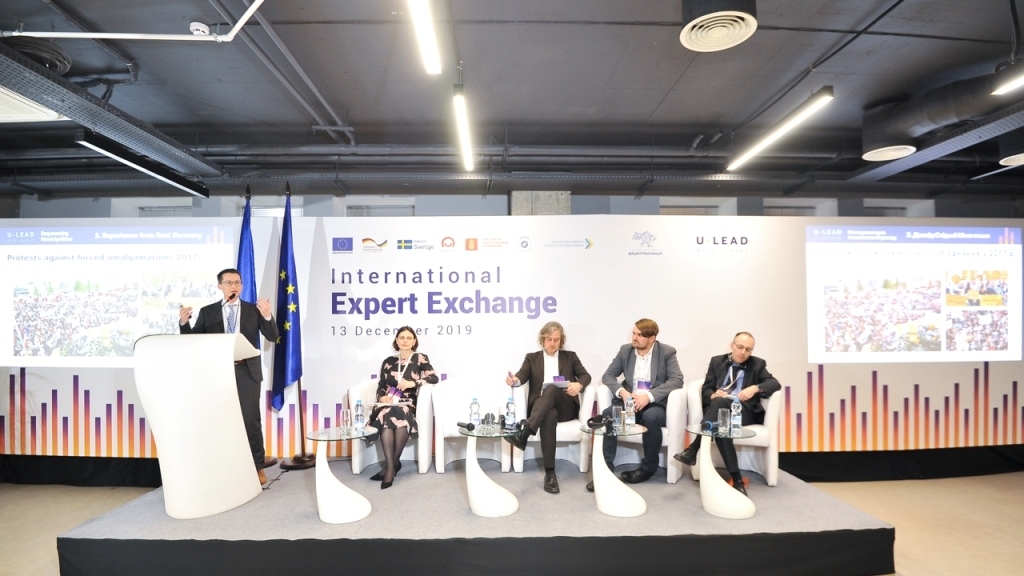
Within the final panel discussion on “How civil society and citizens influence the reforms” Dmytro Gurin, member of the Verkhovna Rada Committee on Committee on State Building, Local Governance, Regional and Urban Development, Nila Ostrovska, head of the Krasylivska AH, and Volodymyr Paniotto, Director General of the Kyiv International Institute of Sociology (KIIS), expressed their vision on perception of the reform by citizens, participatory budget, and engagement of hromada residents in AH development.
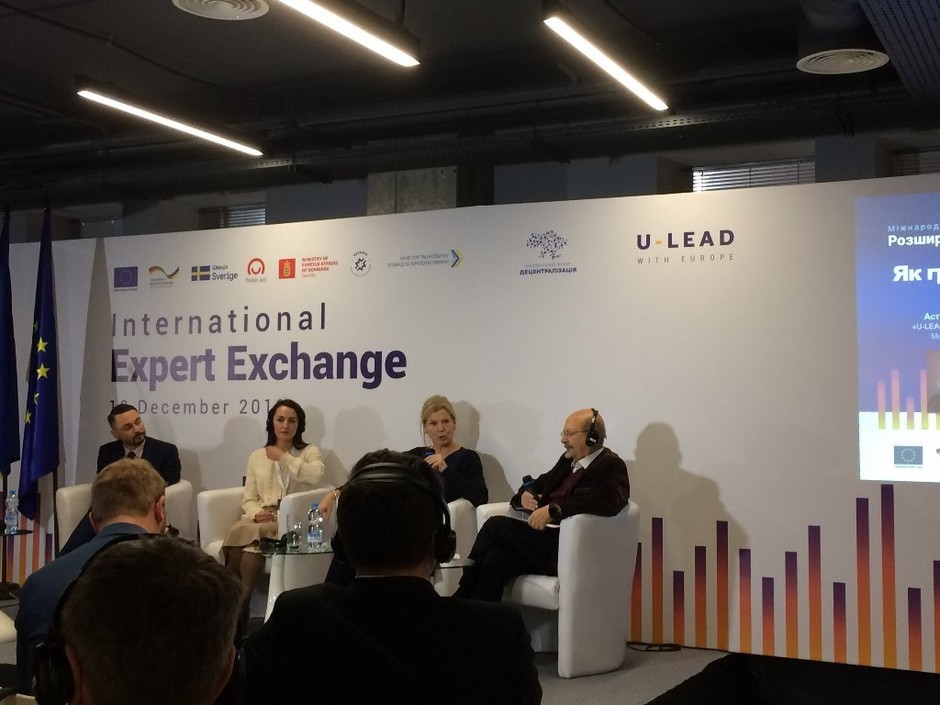
Nila Ostrovska, namely, noted: “Together with the U-LEAD experts, we have completed compiling the hromada development strategy. Participatory budget was introduced, part of the money was earmarked for mini-projects. We received 23 project proposals from residents and 4000 filled-in applications! We also conducted a survey among our hromada residents, asking how comfortable they feel in the AH. 80% responded they are happy to live in the hromada. We are developing!”
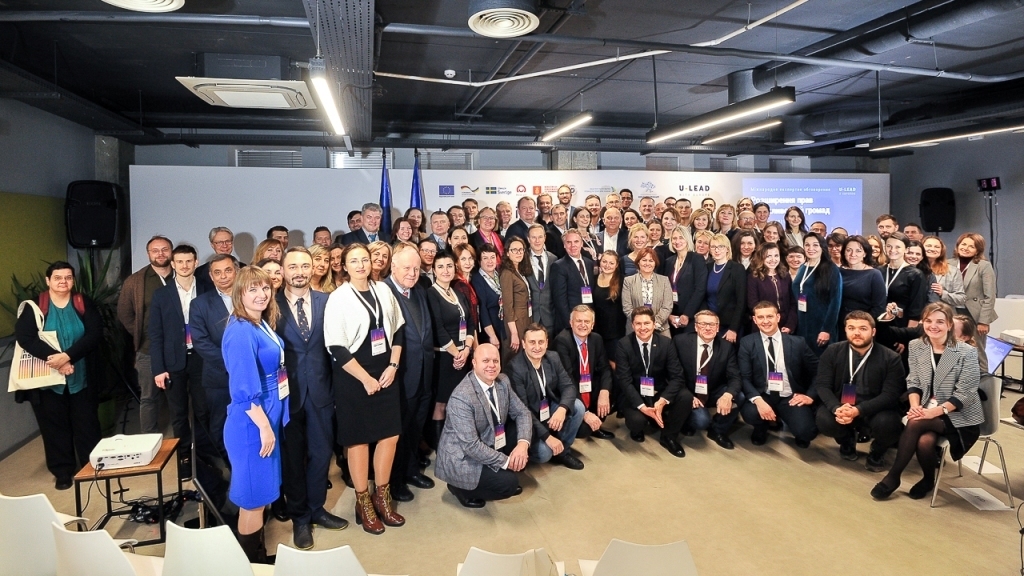
30 January 2026
15 громад Прикарпаття об’єднуються навколо...
У місті Галич керівники 15 територіальних громад Івано-Франківської області підписали меморандум про співпрацю, який...
29 January 2026
Олексій Рябикін: схвалений Урядом законопроєкт закладає європейські правила розмежування повноважень
Олексій Рябикін: схвалений Урядом законопроєкт...
«Цей закон закладає основу для європейської моделі публічного врядування в Україні – з чітким розмежуванням...
29 January 2026
Цифровий контроль ДІАМ: як «Прозоре будівництво» змінює правила гри для громад
Цифровий контроль ДІАМ: як «Прозоре...
Запуск цифрового застосунку «Прозоре будівництво» для фахівців державного архітектурно-будівельного контролю є...
29 January 2026
Communities will be able to independently...
The Government has approved amendments to its Resolution No. 1364 dated 6 December 2022, which introduce a clearer...
